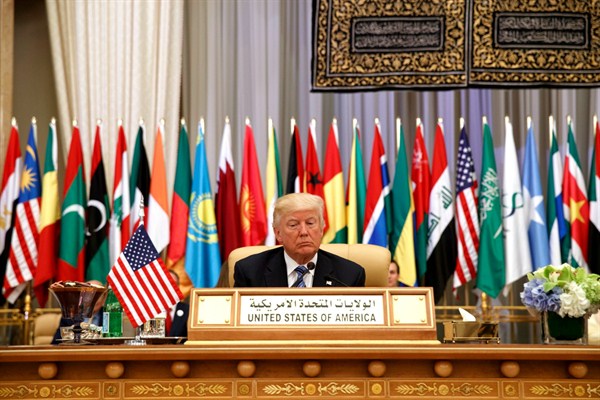Throughout the 2016 presidential campaign, Donald Trump railed at the ineffectiveness of Barack Obama’s Middle East policy, promising that if he was elected there would be dramatic change. Yet candidate Trump offered few details on precisely what he would do differently.
This week his first foreign trip as president began in the Middle East. While there, Trump provided signs of exactly what he intends to do in the region. In terms of broad strategic objectives there is some continuity between the two presidential administrations. Like Obama, Trump seeks to preserve the Middle East’s regional order and help protect Israel and the Arab states against Iran and violent extremism, particularly from the self-styled Islamic State.
But as promised, there are major differences between the Obama and Trump approaches. Iran is an important example. Obama viewed Tehran much as Americans saw the Soviet Union during the era of detente: an adversary, but one that could be worked with on shared interests. The trick was finding the right mix of carrots and sticks. So Obama attempted to push back on Iranian aggression, while rewarding cooperation.

